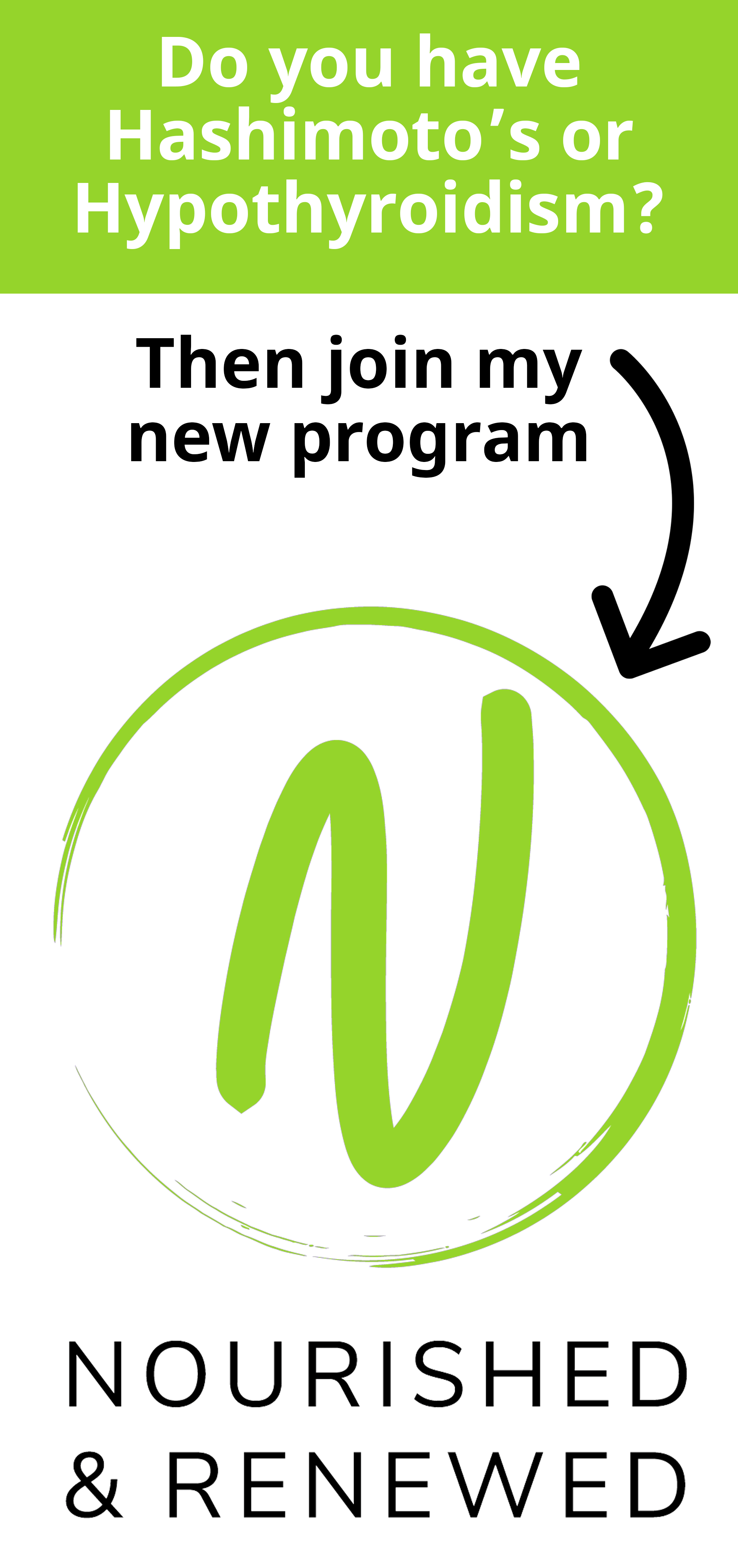I personally have had experiences with Hashimoto’s when it was clear that I was in a “flare,” and I can tell you that it’s quite unpleasant.
There was a period both before and after having my two kids when my body and immune system were putting up a bit of a fight.
Have you ever seen a photo or video of a solar flare?
The sun will be acting perfectly normal, doing its regular sunny thing. And suddenly, out of nowhere, there is a violent rupture from the surface. In an explosive arch, red hot gases burst forth, disrupting the previously calm area around it.
You can practically hear it as a scream.
Now imagine something similarly violent happening within your immune system. No, it’s not a “solar” flare, but an eruption inside your immune system.

If you’ve ever experienced a Hashimoto’s flare-up, you know what I am talking about.
When my own Hashimoto’s flared up in my 30s, it was connected to hormones and stress. Those flares not only made me miserable, they affected systems in my whole body that at first did not appear connected to my thyroid. So, unfortunately, I didn’t immediately know that something was going on.
For me, the symptoms were pretty tell-tale: joint pain, asthma-like symptoms, extreme fatigue, skin problems and digestive discomfort. Each subsequent flare looked similar, so while I dreaded them, I began to recognize a pattern.
These symptoms are not the same for every person.
From working with my clients, I know it can be hard to tell what’s causing the flare-up and I understand the fear that coincides with anticipation of another one.
The good news is you can support your thyroid and overall health to prevent flare-ups and start to feel better overall.

Understanding What a Hashimoto’s Flare-up Is
Hashimoto’s Disease is an autoimmune disorder in which the thyroid attacks itself or the thyroid hormones.
It is the number one cause of hypothyroidism, which is a thyroid that is underproducing thyroid hormones (or conversion of usable forms of thyroid hormone).
Symptoms of Hashimoto’s can be mild to severe but often go undiagnosed because they are similar to many other health conditions and because when they are mild, it can go ignored for years.
People get their Hashimoto’s symptoms under control through combinations of medications, dietary and lifestyle changes.
But just because you feel better for a while doesn’t mean that your Hashimoto’s has gone away. If your immune system is still creating the antibodies capable of attacking the thyroid, you still have Hashimoto’s.
The good news is that you have gotten the disease under control. The bad news is, antibody levels can (seemingly out of nowhere) elevate and cause suffering or discomfort. That is a flare-up.
There are a number of issues that can elevate antibodies and trigger symptoms of a flare-up.
Hashimoto’s Symptoms and Flares
Although similar to acute health problems like stress or lack of sleep, Hashimoto’s symptoms are more long-term and include:
- Fatigue
- Sensitivity to cold
- Constipation
- Hair loss or thinning of hair
- Weight gain
- Joint or muscle pain
- Depression
- Irregular menstruation
- Dry skin
- Problems with memory or focus
Any of these could also be signs of a flare-up. But more extreme versions can also be signs.

Instead of a headache, you may experience migraines. Instead of dry skin, you can start to get rashes. Some people even experience fever or nausea.
How long these flare-ups last varies greatly person to person, as does the cause. But one thing that is true for everyone is that the autoimmunity that leads to flare-ups causes damage to the thyroid.
Remember, this damage is caused by the antibodies that are attacking the thyroid, leaving the gland unable to produce the necessary levels of thyroid hormones. Elevated levels of antibodies are usually the culprit. Hashimoto’s is characterized by a “wonky” immune system, so this makes sense: When the immune system goes awry, and attacks self tissue, you can feel really terrible.
Furthermore, while each flare-up may not do too much damage in the short run, each and every one adds to the cumulative effects. This means that while you might be able to put up with the symptoms, there may be long-term effects that you cannot see.
The Most Common Causes of Hashimoto’s Flare-ups (Which May Differ for Everyone)
What causes your Hashimoto’s to rear its ugly head may be different from your neighbor or relative with the same disease.
But common triggers include:
- Lack of sleep
- Stress
- Changes in hormones (like the postpartum period, or menopause)
- Lack of exercise or too much exercise
- Exposure to toxins or pathogens
- Nutrient deficiencies (more on that later)
- Medications or supplements that interfere with thyroid medication

Immune system dysregulation is the name of the game with a flare-up. If you are on the “edge” of getting sick or feeling really run down, a flare might be the result instead of a cold or virus that puts you to bed. A flare can feel like you have a “bug,” when in reality, it’s your own immune system attacking your thyroid.
Lack of sleep and stress go hand in hand because one often causes the other and because they often have similar effects. And, we all know what that can do to the immune system.
Poor sleep and stress can lead to inflammation and drain the nervous and immune systems, which can impact thyroid function. This happens when metabolism is slowed, affecting the conversion of the thyroid hormone T4 into the active form, T3. This down regulation of the thyroid can also lead to a flare.
Generally speaking, hypothyroidism symptoms can be exacerbated and feel very flare-like. When they come a go, it might feel like you are always in or out of a flare-up. This is quite common with medication changes early after diagnosis.
Beyond lifestyle factors, toxins have also been found to disrupt thyroid function and may lead to a flare-up if exposure is intense or prolonged.
These include bisphenol A or BPA (commonly used in food packaging) and glyphosate (the most widely used herbicide in agriculture). Toxins like hormones in meat and dairy, pesticides, heavy metals, mold, and even pathogens (parasites, H. pylori bacteria, Epstein Barr virus…) can also all impact the immune system, cueing up a flare.
Certain medications and supplements can interfere with the functioning of your thyroid medications, not allowing them to work quite as well. These can include some antibiotics, antacids, other types of hormones and even calcium or iron supplements.
It’s best to speak to your endocrinologist or other healthcare provider to make sure these aren’t an issue or discuss timing when you take these to avoid interactions.
The bottom line is that if it disrupts your immune system or your thyroid function, a flare is likely.

Hashimoto’s Flare-ups from Nutrient Deficiencies
There are a number of nutrients that are so essential to thyroid function, that if you become deficient, it can definitely send you into flare-up territory.
Each of these could cover quite their own lengthy blogs. And in fact, most of these already have dedicated articles on my site. Others are in the works.
Important Nutrients to Consider
Iodine: This mineral is essentially the backbone for thyroid hormones, making it one of the most important nutrients for thyroid health. The tricky part is that while you don’t want to become deficient, too much iodine can also negatively impact thyroid health.
Vitamin D: Also called Vitamin Sunshine because we can get it from sun exposure, low D levels translates to low TSH (Thyroid Stimulating Hormone), which causes low T3 and T4. And people with autoimmune thyroid disorders are much more likely to have low vitamin D levels.
Zinc: Known for its immune boosting-qualities, zinc is a necessary mineral for TSH and T4 production, as well as the conversion of T4 to T3. Zinc deficiency has also been found to increase the risk of autoimmunity.
Selenium: More selenium is found in the thyroid than in any other organ or gland in the body and a deficiency has been associated with autoimmune thyroid disorders.
B vitamins: B12 in particular has been found to be deficient in those with autoimmune thyroid disorders. But all the B vitamins work synergistically together to support our health, including thyroid health.
Think about the ways in which these nutrients support both thyroid function and the immune system...so, if there are deficiencies, well, then, there will be flares.

Support and Prevention of Hashimoto's Flare-up
As you can imagine, one of the best ways to prevent flare-ups of your Hashimoto’s is to make sure to include the above-mentioned important nutrients in your diet regularly.
You can learn more about their food sources. But perhaps the best way to naturally attain them is to eat a varied and colorful diet, including lots of both cooked and raw vegetables, fruit, nuts and seeds and high-quality meats and seafood.
Avoiding processed foods also goes a long way to avoiding deficiencies. This works two-fold because it will increase nutrient density while also decreasing foods that actually sap nutrients from your body.
One example is the large amount of salt in most processed foods (even sweet foods!) A diet high in iodized salt can lead to the body’s iodine levels getting too high.
As mentioned before, iodine requires a fine balance. It is therefore better to consume foods that naturally contain iodine in the right balance, like sea vegetables, seafood and eggs, than from salt that has been fortified with the mineral.
Avoiding inflammatory foods like sugar, alcohol, gluten, dairy, caffeine, and any antigenic food that causes a reaction for you personally is also a good idea. Foods should support health, not detract from it. So, if that morning cup of coffee, or nightly bowl of ice cream is at the root of why your immune system is going haywire, time to rethink it.

The Importance of Regulating the Immune System
Many doctors tell their patients that thyroid autoantibody levels “will not change over time,” and are “not related” to a patient’s symptoms - or flares.
Levels of autoantibodies that rise over time may be more significant than stable levels, as they may indicate an increase in autoimmune activity, and fluctuations in antibody levels can be a sign of flare-up activity.
As I have stated, flares are about the ongoing dysregulation in the immune system.
I find that autoantibodies are reflective of the autoimmune process, a person’s degree of immune system dysfunction, and likely, the relative severity of their symptoms.
Routine screening of the thyroid that only involves the TSH test does not always show the whole picture.
In my experience, regular autoantibody tests can show whether or not a degree of immune system dysfunction is taking place.
A history of autoantibody testing is the best way to see patterns of changes over time.
Ideally, with proper nutritional therapy, we can see a decrease in the antibody levels, resulting in improved symptoms and quality of life. (That is very good news.)
Frankly, once antibody levels are back in normal range, flares stop. This is the goal, the endgame.
Our objectives through nutritional therapy for immune system regulation as it pertains to Hashimoto’s is to:
- improve digestive function
- eliminate outside sources of triggers (foods, pathogens, toxins, stress, etc.)
- support the immune system
- restore overall balance in the endocrine system
Foundation Supplements to Boost Your Thyroid Health
Once in a flare-up, boosting the previously mentioned nutrients through foods can help. But for more immediate relief, it may be necessary to supplement. (Or in the case of vitamin D, get out in the sunshine!)
Zinc and B vitamins can be especially helpful as supplements during this time, because they are very safe for short and therapeutic use. I especially love zinc in lozenge form because of how quickly it enters the bloodstream. Zinc is also powerful for regulating the immune system.
Always talk to your healthcare provider about adding new supplements to your health protocol.
Working with a board certified holistic nutrition practitioner is the surest way to take only the supplements you need, and only the supplements which are most likely to truly help reverse or heal the damage to your thyroid from Hashimoto’s and resultant flare-ups.

The Importance of Sleep and Stress Management
Of course it can be easier said than done, but I cannot stress (excuse the pun) the importance of sleep and managing stress in preventing Hashimoto’s flare-ups and in helping support your body during a flare-up.
But if you need another voice in your head reminding and urging you to prioritize these essential lifestyle choices, let it be mine.
You can’t always control the stress triggers in your life (bills, traffic, in-laws, the holidays). But you can aim to improve how you manage your reactions to them.
Find what works for you that helps you let go of the stress. It may be meditation, yoga, talk therapy, going for a walk, exercise, shouting into a pillow or journaling.
The same goes for sleep. You may not be able to stop a baby from crying in the night or a kiddo from crawling into your bed at 5am.
But if there are patterns of what is interrupting your sleep or ending it early, factor that into your bedtime. Join me in the 9 pm bedtime club - I am early to bed most nights, but if I feel run down, you better believe I am hitting the sack sooner rather than later.
If you are able to get to bed earlier than you think is necessary, your immune system and your thyroid will thank you.

Medication Hesitation for a Flare-up
If flare-ups feel more like the norm than the exception, it may be time to talk to your endocrinologist about adjusting your medication.
If the current medication you are taking doesn’t feel like it’s working for you anymore, time for a change.
It doesn’t mean your stand-by medication doesn’t work for you, but there may be another version or dosage that may work better for where you and your thyroid are at now.
And, as I mentioned earlier, flares are commonly associated with medication dose changes. So, if too many changes are rocking the boat, try to settle on the prescription that works best for you.
Also remember that if you were diagnosed with Hashimoto’s a decade ago, it may be time to mix things up and try something different.
As we enter different phases of life (postpartum, menopause), different medication, lifestyle changes, supplements, and more are called upon to get us through to the next stage.

Hashimoto's Flare-up Finesse
There are a number of ways to deal with flare-ups as they happen, from diet to lifestyle. But the real truth of the matter is it’s easier to work on preventing them from happening in the first place.
And you’ll be a lot less miserable too.
What triggers flare-ups can vary from person to person, making them harder to pinpoint. But the good news is that once you figure out your own personal triggers, you can work to reduce or even eliminate them.
If you would like more support with your thyroid health and overall wellbeing, check out my 30-day Nourished & Renewed With Hashimoto’s program.
This is a self-paced online lifestyle program that offers tangible, realistic solutions for improving your Hashimoto’s and your overall health in a way that lasts.
If you are looking for personalized attention to your thyroid, seek out a program and thyroid advocate who can give you the tools and resources to feel your best again.
I would recommend my Happy & Healthy Adult Program for those with possible thyroid health issues.
There is so much that you can do to boost thyroid health and live your best life. I hope that no matter your diagnosis and your medication plan, you will consider making nutrition and lifestyle changes part of your plan too.





